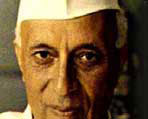 |
| a home away from home |
| HOME FEEDBACK TELL A FRIEND WEB SITE DESIGN CAREER WITH US CONTACT US |
![]() Festivals
Festivals
![]() Durga Puja
Durga Puja
![]() Associations
Associations
![]() Learn
Bangla
Learn
Bangla
![]() Beng.
Marriage
Beng.
Marriage
![]() Art &
Craft
Art &
Craft
![]() Great Indians
Great Indians
![]() Beauty
Care
Beauty
Care
![]() Recipe
Recipe
![]() Astrology
Astrology
![]() Beng.
Section
Beng.
Section
![]() Bengal
Bengal
![]() Calcutta
Calcutta
![]() Beng.
Calendar
Beng.
Calendar
![]() Wallpapers
Wallpapers
![]() Movie
Movie
![]() Music
Music
![]() E-Card
E-Card
![]() Shopping
Shopping
![]() E-Puja Room
E-Puja Room
![]() News
News
![]() E-mail
E-mail
![]() Month's Events
Month's Events
![]() Weather
Weather
![]() Chat
Chat
![]() Education
Education
![]() Join Us
Join Us
![]() Advertise
Advertise
![]() Website links
Website links
![]() Link to us
Link to us
![]() Guest Corner
Guest Corner
![]() Services
Services
![]() WebSite
Design
WebSite
Design

Jawaharlal Nehru (November 14, 1889 - May 27, 1964) was a leading political head of India's war of sovereignty and served as its first Prime Minister. In general referred to as Panditji (Scholar), Nehru was also an author, intellectual and proletarian historian, and the patriarch of India's most prominent biased family.
In the year 1889, India, under British-Raj was tottering on her toes. The imperial policies were draining her of all her wealth & glory. In that year, on 14th November, Jawaharlal was born to Motilal Nehru & Swaruprani at their Allahabad residence.
His father being a reputed barrister sent him and his sister Vijaylakshmi (later Pandit), to England in 1905 for a refined British education as was considered in those days. He was admitted in the reputed Harrow School & studied there. He did his graduation from Trinity College, Cambridge University. In the year 1910, he received his Bachelors degree. Then he spent two years studying Law in London & returned home in 1912 as a barrister.
Nehru became a fascinating, drastic organizer, advocating absolute sovereignty from the British Empire. An emblem for Indian infancy, Nehru was in addition a supporter of communism as a means to address long-standing national challenges. Helping as Congress President, Nehru raised the flag of independent India in Lahore on December 31, 1929.
Selected to escort free India's administration, Nehru would provide as India's prime minister and chief of the Congress.The same as India's leader, Nehru oversaw foremost nationalized programmes of industrialization, agrarian and land reforms, communications and vigor progress. He fervently worked for womens' rights, secularism and improvement of edification and societal interests. Nehru's daughter Indira Gandhi would go on to direct the Congress and serve up as prime minister, as would his grandson Rajiv.
Though he started practicing in Allahabad High Court, he was soon attracted to Gopal Krishna Gokhle's "Servants of India Society", which he soon joined . In 1916,in the Lukhnow session of the I.N.C. he met Mahatma Gandhi. Also, in this year he married Kamala who bore him a daughter a year later. In 1921, he joined the civil disobedience movement led by Gandhi. Both he & his father were arrested & jailed. In 1923 he became the secretary of A.I.C.C. In 1928 he led the boycott of the Simon Commission. In 1929 he was elected to be the president of the Lahore session of the I.N.C. More than the subsequently thirty years, he rose to become the top supporting leader of the Indian National Congress Party and its great effort for independence from Britain. He was imprisoned seven times. After liberty he served as India first Prime Minister from 1947 until he died in May, 1964. He was also a grand internationalist, and one of the founders of the neutral progress.
It was in this session that the oath to have a complete independence was taken. When India became Independent in 1947, he was asked to take over as the Prime Minister, which he did in 1951 when India became a republic. The great pillar of India's struggle for her freedom passed away on 27th May 1964, while in office. The whole country submerged into an ocean of grief & paid their last homage through prayers. After cremation his ashes were spread in the holy water of the Ganges.

Bibliography Nehru wrote voluminously, particularly at the same time as in jail; his noteworthy workings comprise Glimpses of World History (1936), comprising lettering to his daughter (Indira Gandhi), and The Discovery of India (1946), autobiography, Toward Freedom (American ed. 1941, repr. 1958); biographies by M. Edwardes (1971) and S. Gopal (3 vol., 1976-84); B. R. Nanda, The Nehrus (1962).
GREAT INDIANS || BENGALI SECTION || BENGALI MARRIAGE || BABY'S NAME || WALLPAPER || BENGAL || WEATHER || TRAVEL
MOBILE WALLPAPER || E-CARD || MOVIE || WEBSITE LINKS || ASSOCIATIONS || SHOPPING || ASTROLOGY || MUSIC || BEAUTY CARE
TIGER || NEWS || GUEST CORNER || FEEDBACK || LINK TO US || FOR ADVERTISING || SERVICES || CONTACT || BENGALI CALENDAR
Graphics, Sound or content copied or produced in part or whole in any media will be illegal.
Persons or websites caught using our material will be penalized.
Privacy Statement || Copyright
Copyright ©1999-2014 BANGALINET.COM